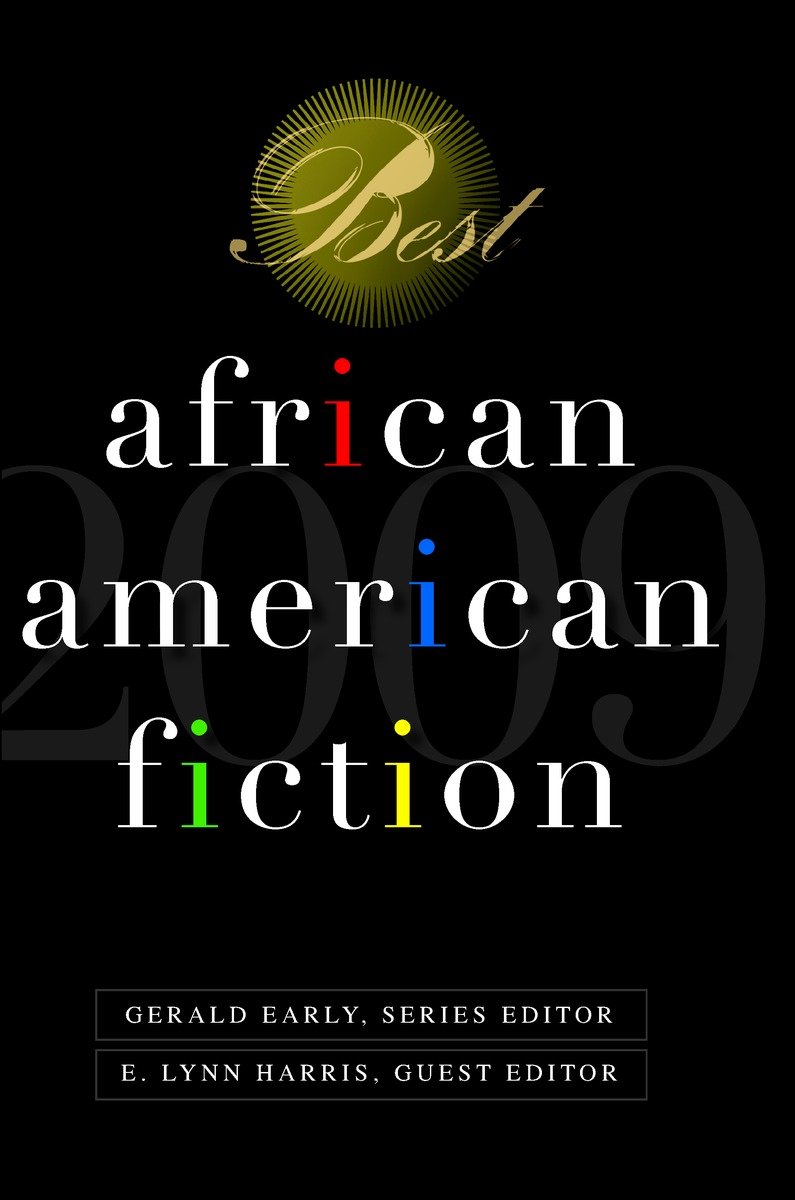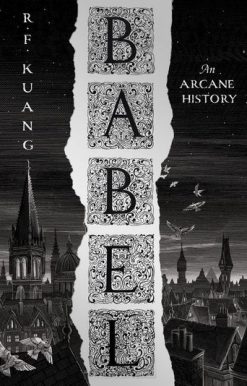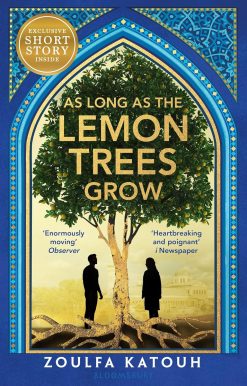No gift registry found click here to create new registry
Cart contain Gift Registry Items cannot add products
Best African American Fiction: 2009
13.00 JOD
Please allow 2 – 5 weeks for delivery of this item
Add to Gift RegistryDescription
Introducing the first volume in an exciting new annual anthology featuring the year’s most outstanding fiction by some of today’s finest African American writers.From stories that depict black life in times gone by to those that address contemporary issues, this inaugural volume gathers the very best recent African American fiction. Created during a period of electrifying political dialogue and cultural, social, and economic change that is sure to captivate the imaginations of writers and readers for years to come, these short stories and novel excerpts explore a rich variety of subjects. But most of all, they represent exceptional artistry.Here you’ll find work by both established names and up-and-comers, ranging from Walter Dean Myers to Chimamanda Ngozi Adichie, Mat Johnson, and Junot Díaz. They write about subjects as diverse as the complexities of black middle-class life and the challenges of interracial relationships, a modern-day lynching in the South and a young musician’s coming-of-age during the Harlem Renaissance. What unites these stories, whether set in suburbia, in eighteenth-century New York City, or on a Caribbean island that is supposed to be “brown skin paradise,” is their creators’ passionate engagement with matters of the human heart.Masterful and engaging, this first volume of Best African American Fiction features stories you’ll want to savor, share, and return to again and again.Please click the “Behind the Book” link for contributor’s bios.
Additional information
| Weight | 0.4 kg |
|---|---|
| Dimensions | 2.29 × 15.42 × 23.3 cm |
| PubliCanadation City/Country | USA |
| book-author1 | E. Lynn Harris, Gerald Early, Junot Diaz, Mat Johnson, Walter Dean Myers |
| Format | Paperback |
| Language | |
| Pages | 336 |
| Publisher | |
| Year Published | 2009-1-13 |
| Imprint | |
| ISBN 10 | 0553385348 |
| About The Author | E. Lynn Harris is a nine-time New York Times bestselling author. His work includes the memoir What Becomes of the Brokenhearted and the novels, A Love of My Own, Just as I Am, Any Way the Wind Blows (all three of which were named Novel of the Year by the Blackboard African American Bestsellers), I Say a Little Prayer, If This World Were Mine (which won the James Baldwin Award for Literary Excellence), and the classic Invisible Life. His latest book is Just Too Good to Be True. Gerald Early is a noted essayist and American culture critic. A professor of English, African & African American Studies, and American Culture Studies at Washington University in St. Louis, Early is the author of several books, including The Culture of Bruising: Essays on Prizefighting, Literature, and Modern American Culture, which won the 1994 National Book Critics Circle Award for criticism, and This Is Where I Came In: Black America in the 1960s. He is also editor of numerous volumes, including The Muhammad Ali Reader and The Sammy Davis, Jr. Reader. He served as a consultant on four of Ken Burns’s documentary films, Baseball, Jazz, Unforgivable Blackness: The Rise and Fall of Jack Johnson, and The War, and appeared in the first three as an on-air analyst. |
“A treasure trove of discovery…Readers across racial lines will find reason for delight in this debut of what is intended as an annual series.”—Kirkus “There hasn’t been an anthology of such talented African-American literary figures since Marita Golden’s Gumbo, and the result is a masterful bouquet of literary flowers, some grand, some subtle, but none shrinking…With something for every reader’s taste, this is a collection not to be missed.”—Publishers Weekly “This engaging collection…shows the incredible range of talent and focus of fiction written by African Americans."—Booklist "These short stories, excerpts from novels, and thoughtful essays cover a broad range of subjects, experiences and perspectives from many of the best writers working today."—Sacramento Bee |
|
| Table Of Content | Introduction/By Gerald Early, Series EditorIntroduction/By E. Lynn Harris, Guest EditorStoriesPita Delicious/By ZZ PackerAlbino Crow/By Chris AbaniOrb Weaver/By Emily RaboteauThe Saving Work/By Tiphanie YaniqueDance for Me/By Amina GautierCell One/By Chimamanda Ngozi AdichieIn the Blink of God’s Eye/By Edward P. JonesThis Kind of Red/By Helen Elaine LeeNovel ExcerptsDark Reflections/By Samuel R. DelanyThe Great Negro Plot/By Mat JohnsonThe Brief Wondrous Life of Oscar Wao/By Junot DíazMan Gone Down/By Michael ThomasYoung Adult FictionExcerpt from Feathers/By Jacqueline WoodsonExcerpt from Harlem Summer/By Walter Dean MyersExcerpt from Elijah of Buxton/By Christopher Paul CurtisExcerpt from Up for It: A Tale of the Underground/By L.F. HainesPermissions and CreditsAbout the Editors |
| Excerpt From Book | From the Introduction"Over the course of American literary history African Americans tried many times to read, write, and publish their own books as a sign of cultural independence and racial entrepreneurism. In the end, the act of wiring black fiction was both quixotic and heroic. It served black and white readers alike by reminding them that black people wanted to write fiction, for its own sake and because it might empower the race. And it served the nation by reminding everyone that the creation of black literature was an act of freedom. For every new possibility that blacks fulfilled, such as the utterly preposterous one of becoming fiction writers, further possibilities opened for everyone else.The effort required, however, was daunting.Not until after the Civil War would African American writers become sufficiently practiced in the craft of fiction writing to produce more than one novel or enough short stories to be collected in a volume. But those early writers, unpracticed and frequently unoriginal as they may have been, did much to establish a tradition of black literature. While these literary ancestors did not directly influence black writers who came later, one can appreciate them for a variety of reasons, even just for persevering to get what was in their heads on paper, at a time when society was organized to ensure that they had nothing in their heads and no way of putting anything on paper. For later generations, filiopiety has limits but also satisfies certain necessities of the mind and heart. As the bassist Charles Mingus once put it so succinctly, "Thank god I've got roots!"My hope for the Best African American Fiction series is that it will show how far African American fiction has come and, more important, how far it extends." ~Gerald Early"Considering the time and place of my Southern upbringing, it ought to come as no surprise that most of the books I encountered were by white authors. The libraries and schools were full of books by no one else. Not for years would I discover James Baldwin's Go Tell It on the Mountain, the first book that truly spoke to me. It depicted a world I closely identified with; more than that, it suggested to me for the first time that I might become a writer, that my life as a young African American boy was story worthy of being written.While I can't claim that reading saved my life, books nevertheless profoundly shaped me. They made my dreams bigger.Being asked to write the introduction for the inaugural volume of Best African American Fiction is therefore a welcome opportunity to me as a reader and an honor to me as an author. It's the perfect chance to get acquainted with some of the best work by the best African American writers being published today. With this volume, whose knockout roster reads like a who's who of contemporary black fiction, it's difficult to know where to begin." ~E. Lynn Harris |
Only logged in customers who have purchased this product may leave a review.
Related products
-
On backorder 2-5 Weeks to Arrive
Add to Gift Registry -
On backorder 2-5 Weeks to Arrive
Add to Gift Registry36.99 JOD -
On backorder 2-5 Weeks to Arrive
Add to Gift RegistryAs Long As the Lemon Trees Grow
Paperback
8.99 JOD -
On backorder 2-5 Weeks to Arrive
Add to Gift Registry110.00 JOD






Reviews
There are no reviews yet.